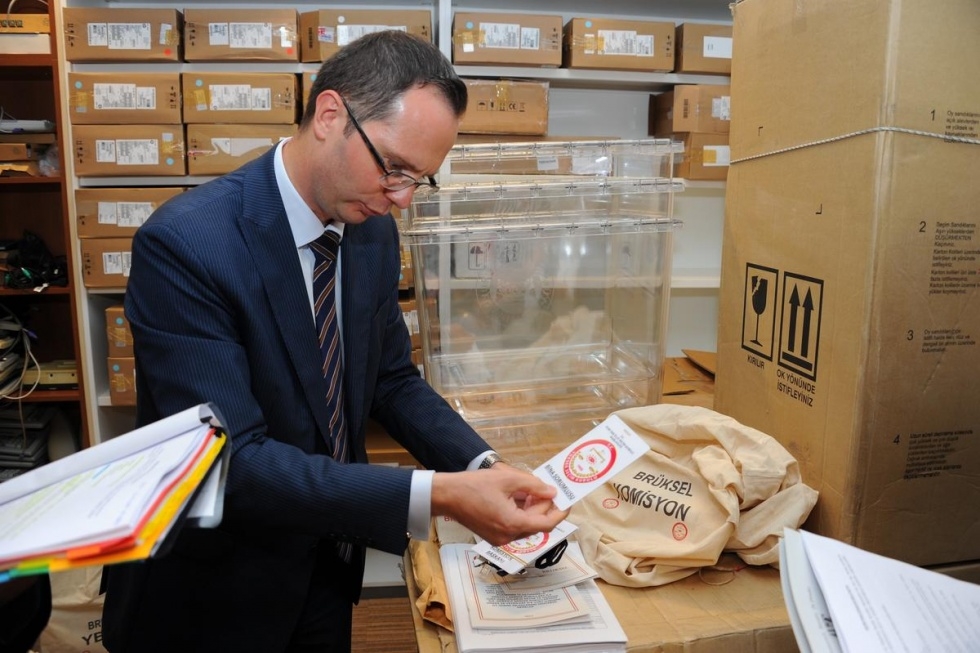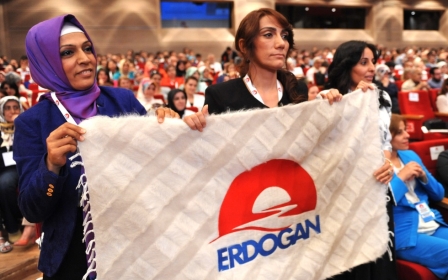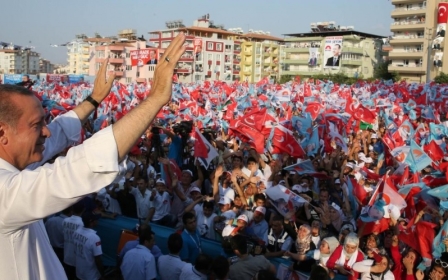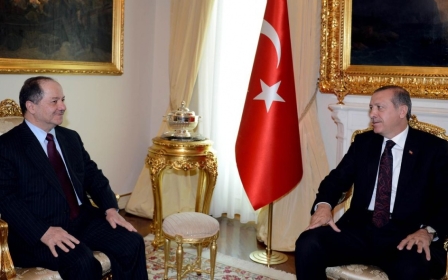Turks abroad vote at overseas polling booths for first time

While Turks living abroad will be able to cast their votes at polling stations in their country of residence for the first time starting Thursday 31 July, only a small percentage of Turkish expats have registered to take part in the presidential elections.
According to Turkey’s High Election Board (YSK) only 180,000 of the 2.7 million overseas Turkish nationals eligible to vote have registered for an appointment to vote at designated ballot boxes, reported Hurriyet Daily News.
The upcoming presidential elections will be the first time Turkish nationals living abroad can vote in their country of residence after changes made to the Election Law now allow those abroad to vote at embassies, consulates and other select areas.
In the past, Turks living abroad could vote at border gates. But on average, only 7 percent of the 2.6 million potential overseas voters voted in previous elections.
Turkish politicians have encouraged overseas Turks to cast their vote.
On 13 July, chief adviser to Prime Minister Erdogan, Binali Yildirim told a Turkish audience in Belgium that their votes are important.
"Don't you ever say the elections are in Turkey. What difference would my vote make?',Yıldırım said at a dinner organized by the Union of European Turkish Democrats in Brussels.
Polling for overseas Turks began at 42 Turkish border posts including airports on Saturday and will continue until 10 August - the day when voters in Turkey will cast their ballots. Voting through overseas booths will only run until Monday 3 August.
The low turnout has been attributed to the fact that many Turks were not informed that they had to register their addresses at the embassies or consulates in their country of residence in order to register for the ballot, Hurriyet reported.
New MEE newsletter: Jerusalem Dispatch
Sign up to get the latest insights and analysis on Israel-Palestine, alongside Turkey Unpacked and other MEE newsletters
Middle East Eye delivers independent and unrivalled coverage and analysis of the Middle East, North Africa and beyond. To learn more about republishing this content and the associated fees, please fill out this form. More about MEE can be found here.




